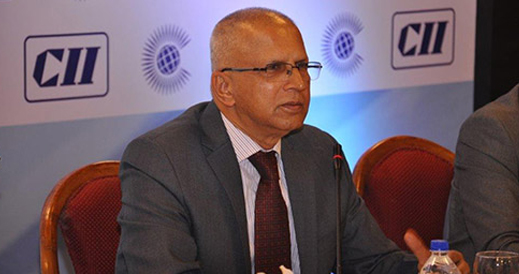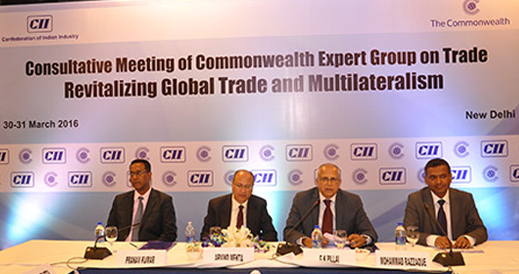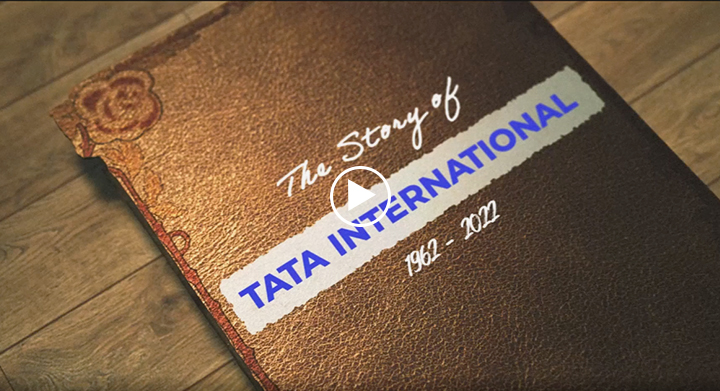TIL Chairman inaugurates Commonwealth Expert Group on Trade meet
May 04, 2016
Chairman of Tata International, Mr GK Pillai, inaugurated the Consultative Meeting of Commonwealth Expert Group on Trade (CEGT) in New Delhi on March 30-31, 2016. The Confederation of Indian Industry (CII) in collaboration with the Commonwealth Secretariat, London, organises the CEGT, an annual event that brings together a group of experts and practitioners across the Commonwealth to review key emerging developments in international trade. It brings into focus the trade challenges of Commonwealth developing countries, especially small states, least developed countries (LDCs) and Sub-Saharan Africa; and considers the issues that the international community (including development partners) should prioritise to promote the role of trade in economic development.
The theme for 2016 CEGT was ‘Revitalising Global Trade and Multilateralism’ against the backdrop of a deepened slowdown in world trade growth and protracted battles at WTO’s 10th Ministerial Conference in Nairobi, with no clear sense of a way forward. The discussions at CEGT were organised around six related issues: the slowdown in global trade: implications for developing countries; trade multilateralism post-Nairobi; new issues in multilateral trade agreements; the Paris climate deal and implications for trade; the role of the private sector in re-energising trade multilateralism; and intra-Commonwealth trade and investment flows.
The urgent need to analyse the cyclical vis-à-vis structural factors contributing to recent global trade performance in assessing the trade-led development strategies was highlighted. Other discussions included highlighting the role of private sector gainfully participating in the global value chain, implications of the ‘new issues’ referred to in the WTO’s Nairobi Ministerial Declaration, and enhancing the role of the Commonwealth secretariat in building and improving the private sector’s capacity, especially women entrepreneurs, to better understand and engage in trade policy issues and negotiations.





